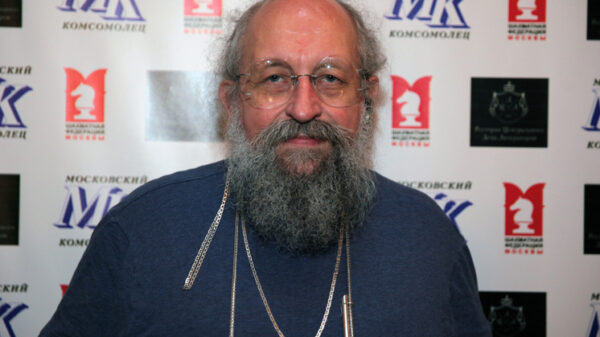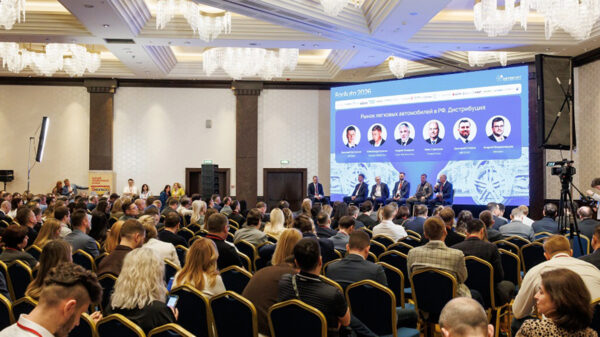 Kelly Simmons believes that «women's football will become the second largest sport in the world after men» 39;soccer' Photo: FA/Barrington Coombs
Kelly Simmons believes that «women's football will become the second largest sport in the world after men» 39;soccer' Photo: FA/Barrington Coombs
After 32 years at the Football Association, Kelly Simmons has certainly earned the chance to put her feet up and talk to Telegraph Sport overlooking the sun-drenched Aegean.
However, it quickly becomes clear that she is not in Greece on holiday, but attending the women's football summit in Athens. Despite leaving her post as director of the women's professional game just days earlier, the work continues.
Her departure from the FA marks the end of an era in which the governing body was in the process of transferring control. Women's Super League and Championship to a new organization [NewCo], and there is no denying that the English women's game is in a completely different state to when Simmons first took over.
Recalling his first job with the FA in 1991 as a regional manager for women's football, covering the south from Cornwall to Kent, Simmons says: “My father interviewed me because he was desperate to go to Lancaster Gate to see what will». what the building looked like, which was often in the news.
“In the early days there were almost no women in the FA who were not secretaries, but then there was no women's football in the FA. In many ways it was the governing body of men's football. It was a very different organization, and from a cultural point of view it was quite complex.»
Over the next three decades, Simmons experienced everything from sitting in tears in the stands in Edmonton, Canada, when England lost the World Cup semi-final. , making headlines with Kevin Keegan in the office in the 1990s, «to everyone's shock», and working alongside the FA's then technical director Howard Wilkinson to develop a strategy for women's centers of excellence.
«I don't think so.» «That's enough to say about how forward-thinking Howard Wilkinson was when it comes to St. George's Park, the academies and the actual technical design of the game,» says Simmons.
It was her and Wilkinson. who appointed Hope Powell as manager of the England women's team in 1998, a transformative coach who would lead the team for 15 years.
“Hope was one of the best players of her generation, was highly respected, and she invested in coaching,” Simmons says. “At first she turned down the job, and I ended up sitting in her kitchen and saying, 'Someone who doesn't know the game as well as you, and won't be like the player you were, will get this, and «Eventually it will probably go to a guy in the men's game and you'll think, 'I could have done better' if that happens.»
“Fortunately, she took the job and has made huge strides with the resources she had.”
Arguably the biggest turning point in the women's game was the launch of the WSL in 2011 , but it was expected to be introduced even earlier, before Irish broadcaster Setanta went into administration in 2009.
'Joint broadcast agreement with BBC and Sky. was quite transformational.” “My worst moment was when Setanta collapsed and the FA lost a lot of money and had to make redundancies because a huge revenue stream was gone,” says Simmons. “Every project that wasn't due to start was cancelled, including the WSL, so the WSL should have started a year earlier than it did. We were simply heartbroken. Fortunately, the FA was able to stabilize the ship and we set sail again in 2011.”
She says her latest stint at the FA culminated in a co-broadcast deal with the BBC and Sky. : “It gave us a whole different level of impact.”
“We used to sit in a board meeting and think, “Is it right to exceed revenue?” Free broadcasting is as important to us as increasing revenue during game development. The moment we switched on BBC One with Sky was truly transformative. From then on, we really started driving a car.”
So why leave now?
“I already miss the team, the special people at the FA, I miss the day-to-day work, but I felt now was the right time for me and the leagues to step aside as they move to a new club-owned company with the ambitious goal of increasing revenue. . We grew essentially zero revenue to £18 million when I joined the WSL in September 2018 and hopefully laid the foundation for growth and long-term future success.
“Next, I want to support women’s sports and especially women’s games. I want to support the development of women's football in other countries.»
The sport hasn't seen the last of Simmons yet, but what are her hopes for its future?
«Still so much growth, to do. Karen Carney's report highlights how much investment is still needed to ensure we are world class in medical provision, player care and academies. But I think — perhaps in my lifetime — women's football will become the second biggest sport in the world after men's football, I absolutely believe that. It's going to be huge. Just huge!
“The main thing now for the WSL and NewCo will be to move to a more sustainable position because at the moment they are still relying on money from men's football clubs. The situation is changing and new money is coming in, but we will need more revenue growth to protect it and make it sustainable. It's a work in progress, but I'm looking forward to the future.”


























































Свежие комментарии